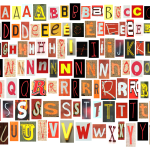As the cold weather rolls in and the days get shorter, we often turn to language to reflect the seasonal changes around us. Winter, with its frosty mornings and chilly nights, has long inspired a range of idioms and expressions that we use in everyday conversation. Many of these phrases not only describe the season itself but also tap into the emotions and experiences that winter evokes. In this post, we’ll delve into some of the most common winter-related expressions and idioms in British English.
1. Cold Comfort
This expression refers to something that offers little relief or consolation in a difficult situation. It stems from the fact that "comfort" should ideally be warm and soothing—so "cold comfort" feels inadequate. For example:
- "Being told it’s only going to snow lightly is cold comfort when your heating’s just gone out."
2. Left out in the cold
To be "left out in the cold" means to be ignored or excluded, often from something important or rewarding. The idea here is that being left outside in the cold is uncomfortable, mirroring how someone might feel if they’re not included.
- "I didn’t get the promotion and now I feel like I’ve been left out in the cold."
3. Break the ice
This is a classic expression often used in social situations. To "break the ice" means to initiate conversation or ease tension, especially in awkward or formal settings. It comes from the idea of needing to "break through" the cold exterior of silence, much like one might break ice to clear a path on a frozen river.
- "I was nervous at the party, but someone broke the ice by asking me about my holiday."
4. Snowed under
To be "snowed under" is to be overwhelmed, usually by work or responsibilities. Much like being buried in snow, this idiom captures the feeling of being completely swamped.
- "I can’t come to the pub tonight; I’m snowed under with paperwork."
5. The tip of the iceberg
This phrase refers to a situation where what’s visible is only a small part of a much larger issue or problem. Like an iceberg, where only a small portion is seen above the water, the bulk of the problem remains hidden beneath the surface.
- "The argument we had last night was just the tip of the iceberg. There’s been tension for weeks."
6. To put something on ice
When we "put something on ice," we delay it or temporarily suspend it. This can refer to plans, projects, or decisions that are postponed until a later time.
- "We’ve decided to put the holiday plans on ice until we’ve saved a bit more money."
7. In the dead of winter
This phrase refers to the coldest, darkest part of winter, typically in January or February. It conveys a sense of stillness and dormancy, when life seems to slow down.
- "In the dead of winter, the countryside looks stark but beautiful."
8. As pure as the driven snow
Used to describe someone who is morally impeccable or innocent, this idiom draws on the image of freshly fallen snow, which is untouched and pristine. It’s often used either sincerely or ironically.
- "She pretends to be as pure as the driven snow, but she’s just as mischievous as the rest of us."
9. Winter blues
The "winter blues" refer to feelings of sadness or melancholy that many people experience during the winter months. The lack of sunlight, cold weather, and shorter days can all contribute to a sense of low mood or lethargy.
- "I always get the winter blues when it’s dark by four o’clock."
10. Walking on thin ice
This expression means to be in a risky or precarious situation, where a mistake could lead to serious consequences. Much like physically walking on thin ice, where danger looms just below the surface, this idiom reflects the fragility of certain circumstances.
- "You’re walking on thin ice by criticising the boss in front of everyone."
So there are 10 commonly used expressions related to winter and the cold weather we often experience during these times! Make sure to use them in your day to day language to impress your native friends and in your exams to give your mark that extra boost!
Make sure to take a look at the worksheet and don’t forget to check out the DAWAY courses and use the code BLOG20 for a 20% discount! Happy studying!



